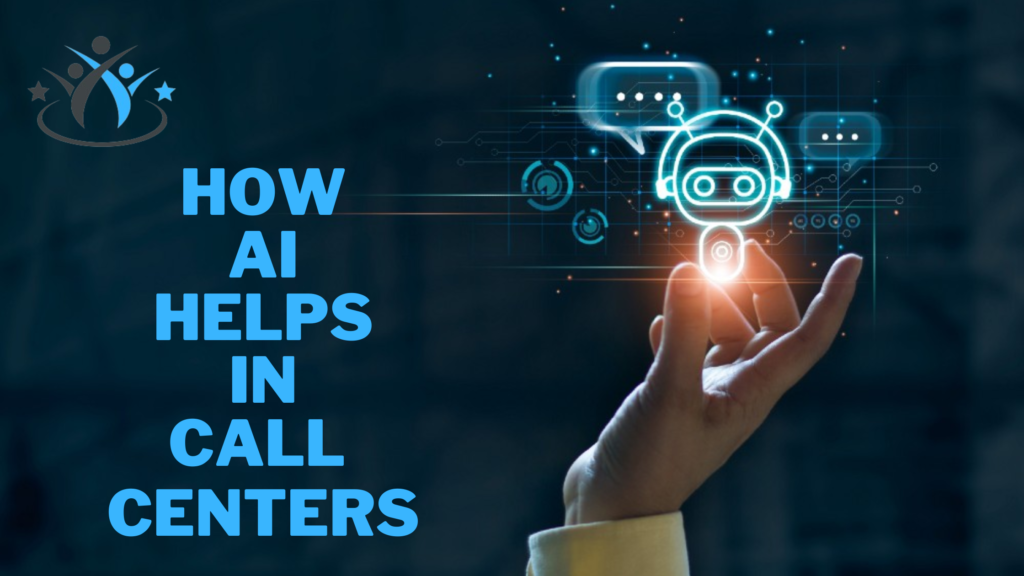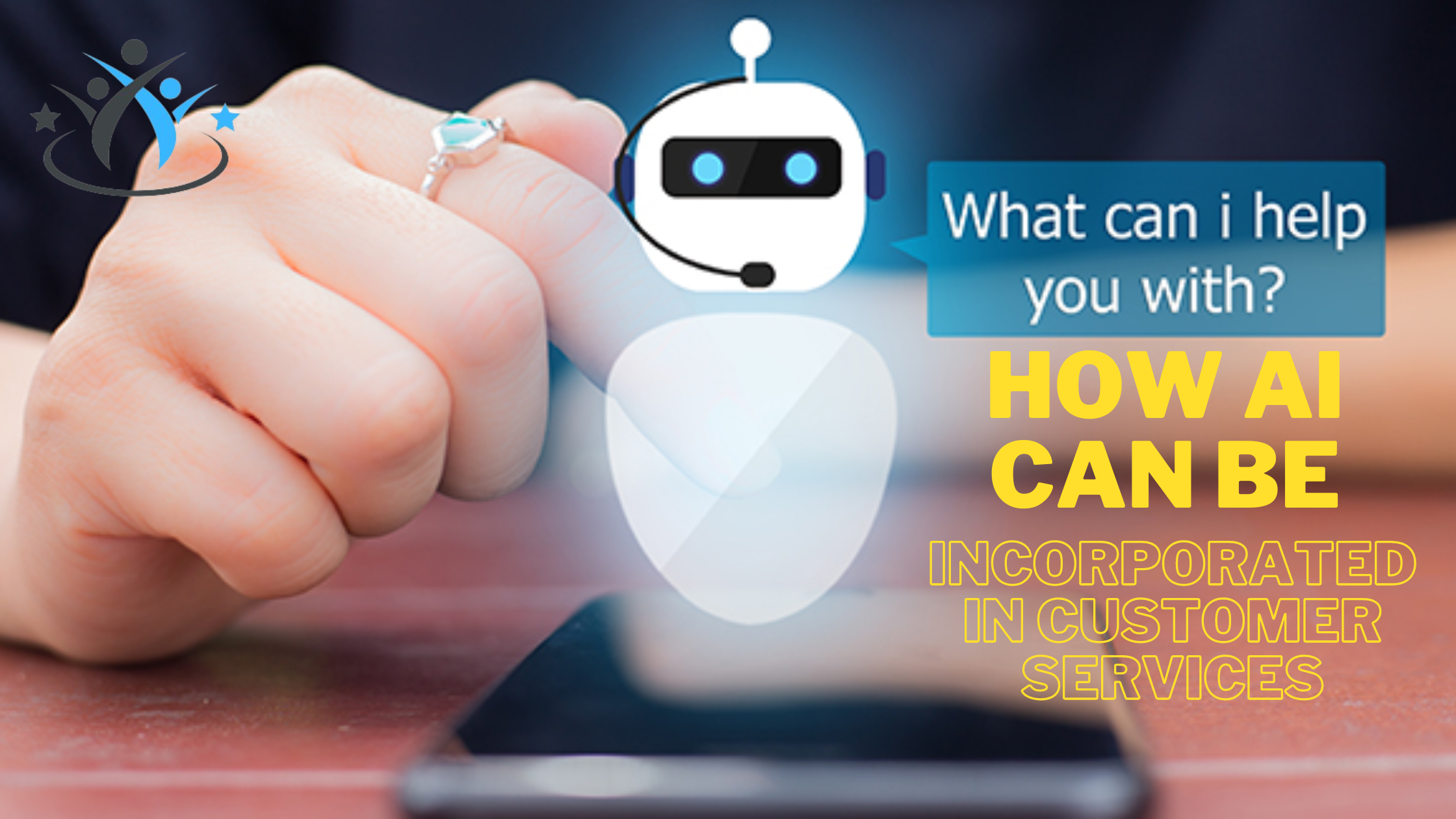In today’s world, customer service is the backbone of every business. As customer service expectations rise, companies turn to artificial intelligence AI to improve service delivery. Nowadays AI is transforming and offering faster more personalized and efficient services. But how exactly can AI incorporated into customer services? Let’s do a deep analysis and explore all the ways of AI customer services.
Definition of AI
AI refers to a simulation of human intelligence in machines. These machines are programmed to think like a human. AI technologies analyze data, recognize patterns and make decisions to improve service quality.
What are the types of AI used in customer services
Types of AI used in customer services are:
- Machine learning enables a system to learn and improve from experience without being explicitly programmed.
- Natural Language Processing (NLP) allows machines to understand and respond to human language.
- Robotic Process Automation automates Repetitive tasks, freeing up human agents for more complex issues.
AI chatbots and Virtual Assistant
Chatbots and virtual assistants are increasingly being used to streamline customer service by handling routine inquiries and tasks around the clock. These AI-powered tools can efficiently answer frequently asked questions, provide product information, place orders, check order status, schedule appointments, and troubleshoot basic issues. By automating these tasks, chatbots enable human agents to focus on more complex and high-value interactions, improving overall efficiency and customer satisfaction. Additionally, chatbots can collect customer information to route them to the most suitable agent, ensuring that customers receive the best possible support.

Advantages of AI Chatbots
- Efficiency: Chatbots can handle multiple queries at the same time.
- Consistency: They provide a uniform answer, ensuring customers receive accurate information.
- Cost Effective: Reduces the need for a large customer service team, lowering operation costs.
Predictive analytics
Predictive analytics is a powerful tool that enables companies to anticipate and meet customer needs more effectively. By analyzing customer data, AI can predict their preferences and needs, allowing businesses to proactively reach out with relevant offers, personalize the customer experience, and anticipate potential issues. This proactive approach enables companies to optimize staffing and resources based on predicted demand, ensuring that they are better equipped to handle customer inquiries and provide timely support.
Sentiment analysis
Sentiment analysis with AI allows companies to monitor customer interactions, identify unhappy customers, analyze sentiment trends, route issues effectively, and provide targeted coaching to agents for improved customer interactions. This tool enables businesses to address concerns promptly, optimize customer service, and enhance overall customer satisfaction.
knowledge management
AI is transforming knowledge management by automatically tagging articles, providing agents with suggested responses, surfacing relevant information across the company, and continuously learning to improve the knowledge base. This enables faster, more consistent support and a continuously evolving knowledge base.
Intelligent routing
Intelligent routing powered by AI analyzes customer information and the current situation to route customers to the best agent based on skills, availability, performance, and priority. This ensures timely, effective, and balanced support while providing agents with relevant customer context for a personalized experience.
Automation
Automation is a key benefit of AI in customer service, as it enables the efficient handling of repetitive and time-consuming tasks. AI can automate tasks such as updating customer records, sending follow-up emails and surveys, generating reports and analytics, and handling simple requests without agent involvement. By automating these tasks, agents are freed up to focus on higher-value interactions that require human judgment and empathy, leading to improved customer satisfaction and reduced support costs.
Continuous improvement
Continuous improvement is a cornerstone of AI-driven customer service, as AI can analyze customer interactions to pinpoint areas for enhancement. By detecting common issues or questions not covered in training, identifying key drivers of customer satisfaction and dissatisfaction, providing coaching insights to agents, and optimizing knowledge articles, processes, and workflows, companies can refine their customer service operations. By integrating AI throughout the customer service lifecycle, businesses can deliver faster, more personalized support, enhance efficiency, and elevate the overall customer experience.
How AI Helps in call centers
AI is revolutionizing by automating routine tasks and providing real-time support to agents. AI-powered systems can route calls to appropriate departments, transcribe conversations and provide agents with relevant information during calls.

What are the benefits of AI in the call center?
- Increased efficiency: AI reduces call handling times by assisting agents with instant information.
- Improved Customer Satisfaction: The faster resolution of issues leads to happier customers.
- Enhanced agent performance: AI provides agents with tools to assist customers better.
How AI Integrates with Customer Relationship Management (CRM) Systems
AI integrates seamlessly with CRM systems, enhancing their functionality. It can automate data entry, provide predictive analytics, and offer insights to improve customer relationship management.
Benefits of AI-CRM Integration
- Improved Data Accuracy: Reduces errors in data entry.
- Enhanced Customer Insights: Provides a deeper understanding of customer needs and preferences.
- Streamlined Operations: Automates routine tasks, freeing up time for strategic activities.
In conclusion
AI is transforming the customer service landscape by providing faster, more personalized, and efficient services. By incorporating AI into various aspects of customer service, such as chatbots, predictive analytics, sentiment analysis, knowledge management, intelligent routing, automation, and continuous improvement, companies can enhance the overall customer experience. AI-powered systems can automate routine tasks, provide real-time support to agents, and integrate seamlessly with CRM systems, leading to improved efficiency, customer satisfaction, and agent performance. As customer expectations continue to rise, AI will play a crucial role in helping businesses deliver exceptional service and stay ahead of the competition.

